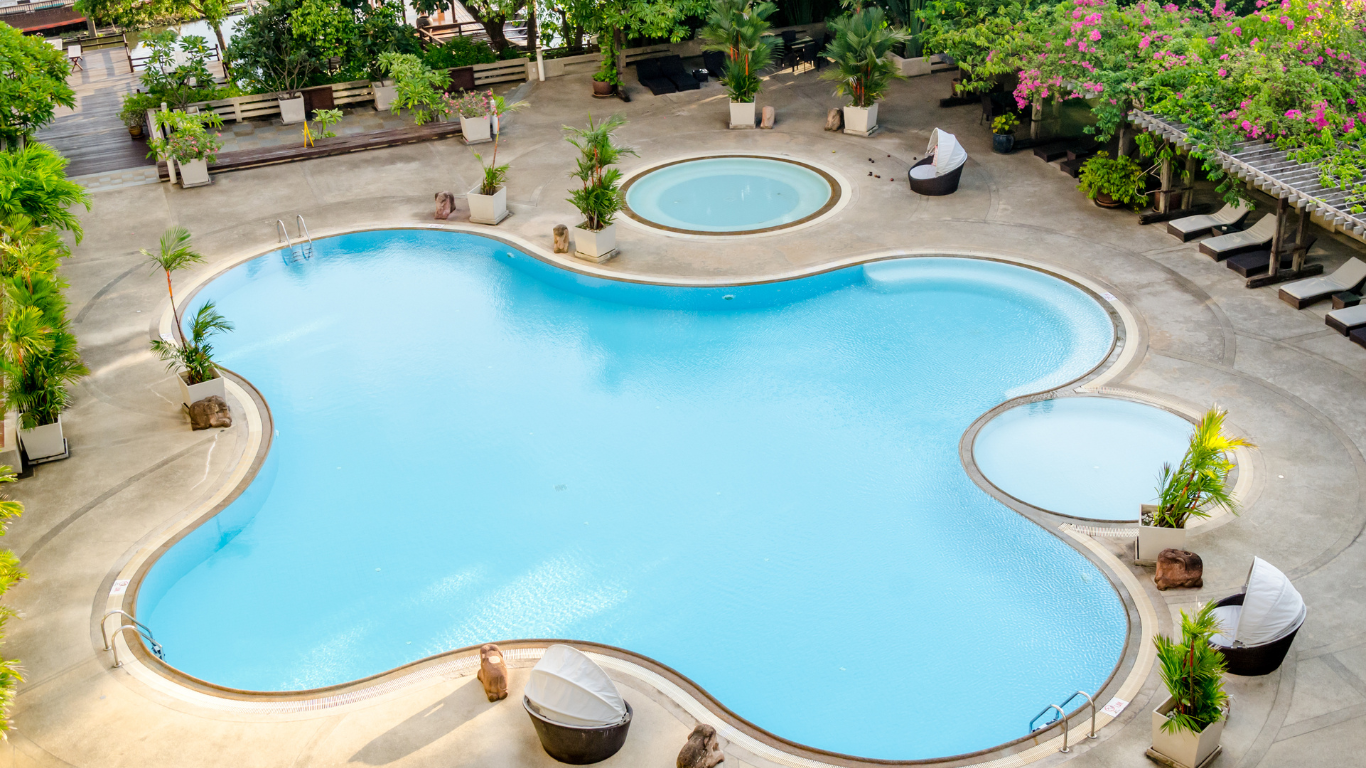There’s something inherently soothing about being near water. Whether it’s the steady ripple of a pool, the sparkle of sunlight reflecting off the surface, or the quiet stillness of early morning, water naturally draws us into a state of calm. When paired with intentional breathwork, the experience becomes even more powerful. Breathing practices are already known to reduce stress, sharpen focus, and improve overall well-being. Add in the presence of water, and the body and mind respond in ways that make relaxation deeper and more restorative.
Why Breathwork Matters
At its core, breathwork is the art of using controlled breathing patterns to influence the body’s nervous system. Slow, steady breaths activate the parasympathetic system—the “rest and digest” mode that counteracts stress. Many people notice that even just a few minutes of intentional breathing lowers their heart rate and clears away mental fog. By building consistency in this practice, you train your body to recover from stress more quickly, which is vital in today’s fast-paced world.
The Pool as a Supportive Environment
Practicing breathwork by the pool introduces unique benefits that go beyond a living room meditation session. Pools provide a gentle soundscape: the lapping of water or the hum of a nearby fountain creates white noise that helps the mind focus. The open air and sunlight stimulate vitamin D production, improving mood. And the tranquil setting of a pool—whether private or public—often encourages you to slow down and be present. These small environmental cues amplify the effects of each inhale and exhale.
Enhancing Relaxation Through Sensory Elements
Water enhances breathwork not just visually but physically and emotionally. Sitting at the edge of the pool allows you to dip your feet in the cool water, instantly grounding you. Floating on the surface, supported by water, reduces tension in the muscles and makes it easier to draw in long, steady breaths. The sensory contrast of cool water and warm sunlight engages the body in subtle ways that help anchor attention, preventing the wandering thoughts that often disrupt meditation.
Simple Techniques to Try by the Pool
You don’t need to be an expert to enjoy breathwork outdoors. Start with box breathing: inhale for four counts, hold for four, exhale for four, and hold again for four. Try this while sitting poolside with your eyes closed. Another method is ocean breathing, where you breathe in deeply through the nose and exhale slowly with a soft “ha” sound, mimicking the rhythm of waves. For a deeper connection, float on your back in the water and sync your breathing with the gentle rocking of the pool. These small practices, done consistently, can transform the pool into your personal wellness retreat.
The Role of Mind-Body Connection
What makes poolside breathwork different is the way it strengthens the mind-body link. The calm surroundings encourage you to notice the subtle rise and fall of your chest, the way your lungs expand, and the release of tension with every exhale. When you combine this awareness with water’s natural symbolism—flow, renewal, and clarity—the practice becomes more than relaxation. It becomes a form of mindful healing that supports mental clarity and emotional balance.
Bringing It Into Everyday Life
While it’s tempting to reserve poolside breathwork for vacations or special self-care days, incorporating it into everyday routines can be life-changing. A few minutes before or after a swim can reset your mind. Hosting a pool gathering? Guide friends through a short breathing exercise to set a calm tone. Even sitting by the water during a stressful workday break can help regulate emotions. By weaving breathwork into ordinary moments, the benefits compound over time.
A Deeper Kind of Relaxation
Breathwork by the pool blends two powerful elements—conscious breathing and the restorative qualities of water. Together, they create a practice that is simple yet profoundly effective in lowering stress, enhancing focus, and nurturing inner calm. Whether you’re floating in the water, sitting at the edge with your feet dipped in, or just listening to the sounds around you, the pool can become a sanctuary for relaxation. With each breath, you’re not just filling your lungs—you’re embracing a holistic practice that refreshes the body, clears the mind, and restores balance. If you are looking for help with building custom pools in Hilton Head, there are contractors who can help.
Article received via email































